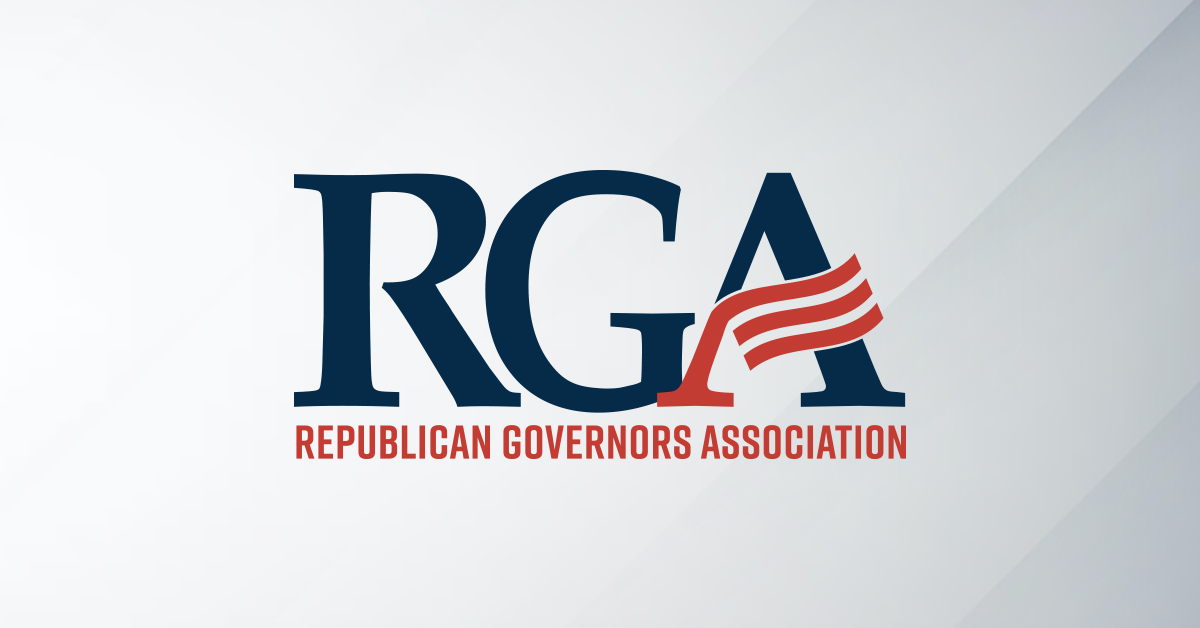
This month, Americans across the country recognize and honor veterans of the United States Armed Forces for their selfless sacrifice and dedication to defending our freedoms and way of life.
With over 18.2 million veterans living in the United States, Republican governors have been instrumental in leading initiatives to improve their quality of life. Republican governors have been focused on addressing the healthcare needs of veterans, reducing economic burdens, and expanding opportunities so that veterans and their families can better transition into civilian life and thrive.
Policies enacted by Republican governors are making a positive difference in the lives of our nation’s veterans. For those who have sacrificed so much for this country, making efforts to improve their quality of life is the least that our public servants can do.
ALABAMA:
- In 2018, Governor Kay Ivey enacted legislation aimed at helping veterans attain employment. Through the Veterans Employment Act, employers would be rewarded with tax credits for hiring veterans, while additional legislation gives preference in competitive bids on state contracts to businesses owned by veterans.
- Governor Ivey signed an executive order expanding the Alabama Executive Veterans Network (AlaVetNet). The purpose of AlaVetNet is to identify issues facing service members, veterans, and their families and to find ways to address those issues in communities across Alabama. Priorities include tackling the opioid epidemic and reducing the suicide rate among veterans.
ALASKA:
- Governor Mike Dunleavy signed an administrative order that streamlined and increased accountability of budget and policy administration within the Department of Military and Veterans’ Affairs. The administrative order centralized all significant administrative services oversight within the Office of Management and Budget (OMB) within the Office of the Governor.
ARIZONA:
- Governor Ducey has been focused on curbing suicide rates among veterans. Through the Be Connected Program, which has been recognized as a national model for success, service members and veterans are connected with support groups and resources. In 2018, the program assisted over 2,000 individuals.
- The Veteran Toolkit Program was launched through Governor Ducey’s Department of Veterans’ Services. This program helps provide unemployed veterans with the supplies and services they need to start a job, from clothing, to transportation, to the appropriate tools and equipment needed. 62 percent of veterans in Arizona stated that had this program been in place previously they would have been able to find a job immediately.
ARKANSAS:
- To make Arkansas a more attractive place for military retirees, Governor Asa Hutchinson signed legislation to exempt military retirement and survivor benefits from state income tax. The governor’s action cut taxes for the state’s 22,000 military retirees.
- To support businesses owned by disabled veterans, Governor Hutchinson expanded Arkansas’ Minority Business Enterprise Certification Program to include service-disabled veterans. By doing so, businesses owned by disabled veterans are provided with more opportunities in the state contracting and procurement process.
FLORIDA:
- Through the Governor’s Initiative on Lawyers Assisting Warriors (GILAW), Governor Ron DeSantis has made it possible for active duty service members to receive pro bono legal services for a variety of civil manners.
- Governor DeSantis signed legislation creating a pilot program to help treat veterans affected by post-traumatic stress and traumatic brain injuries. Under the pilot program, available therapies for veterans have been expanded to include accelerated resolution therapy, service animal therapy, and hyperbaric oxygen therapy.
GEORGIA:
- Governor Kemp signed legislation providing civil relief to military service members concerning certain contractual obligations due to circumstances of active duty.
IDAHO:
- Governor Brad Little signed legislation extending the disabled veterans residential property tax exemption to occupancy taxes.
- Governor Little’s Division of Veterans Services successfully secured a federal grant to establish a fourth State Veterans Home to help improve the quality of life for veterans in the state.
INDIANA:
- This summer, Governor Eric Holcomb enacted legislation exempting veterans and their spouses from paying state income tax on military retirement income.
- Governor Holcomb launched the Next Level Veterans initiative to help recruit and employ looking for employment, training, or housing in Indiana. The governor’s office established a website to provide veterans with information about job opportunities in the state, as well as educational and training opportunities that they can take advantage of.
IOWA:
- Governor Kim Reynolds signed legislation expanding grant funding to allow for family members to be with injured veterans during their recovery. The legislation also allows for military spouses to receive expedited professional licensing if the license requirements from their previous state are substantially the same.
- Enhancements by Governor Reynolds to Iowa’s Targeted Small Business (TSB) allows for the simplification and streamlining of the certification process. The enhancements included the development of an online application portal and upgrades to the online directory, all which will benefit TSB’s owned by service-disabled veterans.
KENTUCKY:
- This past summer, Governor Matt Bevin signed legislation granting occupational licensure reciprocity to members of the reserve, the National Guard, veterans and their spouses.
- Governor Bevin created the Service-Disabled Veteran-Owned Small Business (SDVOSB) Certification Program to support service-disabled military veterans who own a business and live in Kentucky. The program’s priorities include promoting growth among SDVOSBs and encouraging these businesses to locate and expand in Kentucky. This certification program will also allow service-disabled veteran-owned businesses to compete for work in other states that require certification by a statewide body.
MARYLAND:
- Through the Hire Our Heroes Act, signed by Governor Larry Hogan, small businesses are encouraged to hire honorably discharged veterans in exchange for tax incentives.
- Working to provide tax relief for veterans has been a priority for Governor Hogan. In his first year in office the governor enacted legislation exempting the first $10,000 of military retirement income for military retirees 65 and over from state taxes; in 2018 the governor increased the exemption by $5,000.
MASSACHUSETTS:
- Through the HOME Act, Governor Charlie Baker provided additional support for members of the armed services, veterans, and gold star families. Under the HOME Act the aforementioned groups are entitled to certain scholarships, tax exemptions, and housing benefits.
- Governor Baker signed the BRAVE Act, an omnibus package of benefits for veterans. A provision directs the Office of Health and Human Services and Office of Public Safety and Security to partner with institutes of higher education to study veterans and military members suffering from mental health or substance abuse related to their service, as well as their needs within the criminal justice system.
MISSISSIPPI:
- Legislation signed by Governor Phil Bryant to encourage the employment of veterans, offers employers a tax credit of up to $2,000 for hiring a veteran who served on active duty on or after September 11, 2001.
- Governor Bryant signed into law a measure to lower the cost of college tuition for military veterans and their eligible spouses and dependents. Under the law out-of-state tuition is waived for veterans, active duty military, the National Guard or Reserve forces who are eligible for federal Veterans Education Benefits and who either live in another state and attend school in Mississippi or who live in the state but are not residents.
MISSOURI:
- Governor Mike Parson enacted legislation requiring judicial circuits to establish a veterans’ treatment court. Veterans’ treatment courts are similar to drug courts.
NEBRASKA:
- Under Governor Pete Ricketts’ leadership, Nebraska constructed a new, state-of-the-art veterans’ home. The 330,000 square feet home has 225 beds and contains rehabilitation centers, a pharmacy, medical clinic, and public gathering spaces.
- Governor Ricketts signed legislation allowing veterans, their spouses, or dependents to qualify for residents for post-secondary tuition purposes if the veteran is receiving vocational rehabilitation.
NEW HAMPSHIRE:
- An executive order signed by Governor Chris Sununu ensures that all former and current members of the New Hampshire National Guard are guaranteed a job interview with the state for most publicly posted job opportunities for which a member meets the minimum qualifications.
- Legislation enacted by Governor Sununu expands medical care for veterans, by allowing doctors at the Manchester Veterans Affairs Medical Center to treat veterans at private hospitals.
NORTH DAKOTA:
- Governor Doug Burgum signed legislation exempting military retirement pay from state income tax. The deduction is available to individuals or their survivors who receive military retirement pay and is effective for the 2019 tax year.
- Governor Burgum created the Task Force for Veterans Affairs. The task force will review the state’s Department of Veterans Affairs and ensure that the agency is working as efficiently as possible to serve the state’s veterans.
OHIO:
- Since taking office, Governor DeWine appointed the first female director of the Ohio Department of Veterans Services.
OKLAHOMA:
- Governor Kevin Stitt signed legislation creating the Veterans Volunteer Guardianship Act, which allows volunteer guardians appointed by Oklahoma courts to represent veterans who are incapacitated or partially incapacitated to act as fiduciaries for their financial affairs.
SOUTH CAROLINA:
- Governor Henry McMaster continued to build on South Carolina’s veteran-friendly legacy by elevating the state’s Division of Veteran Affairs into a full-fledged cabinet agency, so that the state’s 400,000 veterans could be better served.
- Governor McMaster signed the Servicemembers Civil Relief Act to provide protections to active servicemembers who entered contracts with the state of South Carolina.
SOUTH DAKOTA:
- Governor Kristi Noem signed legislation to expedite the issuance of licenses, permits, certificates or registrations for military spouses.
- After securing funds from the U.S. Department of Veterans Affairs, Governor Noem and the South Dakota Department of Veterans Affairs announced the groundbreaking for the first-ever state military cemetery in Sioux Falls.
TENNESSEE:
- Governor Bill Lee and the Tennessee Department of Veterans Services began construction on a new veterans’ home in Bradley County. The 108-bed intermediate and skilled care nursing facility is scheduled to be completed in 2021.
- Through executive order, Governor Lee expanded the state’s anti-discrimination policy in government hiring to include veteran’s status.
TEXAS:
- Governor
Greg Abbott established
the Texas Transition Alliance to help military members and their families
transition to civilian life. Goals of the Alliance are to expand employment and
training opportunities for military members and their families.
- Legislation signed by Governor Abbott exempts certain businesses owned by veterans from the franchise tax and certain filing fees during an initial period of operation in Texas.
UTAH:
- To increase opportunities for veterans, Governor Gary Herbert signed an executive order directing the Department of Human Resource Management to develop a plan to increase veteran employment.
- Governor Herbert launched a program allowing veterans to qualify for licenses and work certification based on their military experience. The program is run by the Utah Department of Workforce Services.
VERMONT
- Governor Phil Scott signed an executive order establishing the Governor’s Veterans Advisory Council. The purpose of the Council is to advise the Governor on the full spectrum of veterans’ needs and how State government can best address the interests of veterans.
- Legislation signed by Governor Scott makes it easier for veterans and service members to transition back into society by expanding skills and training that servicemembers receive while enlisted.
WEST VIRGINIA:
- To better ensure that veterans receive the medical care they deserve, Governor Jim Justice launched a plan to transport disabled or injured veterans to appointments at VA facilities across the state.
- Governor Justice offered a 50 percent discount to veterans for lodging at West Virginia state parks and forests during Veterans Appreciation weeks.





See the latest videos from RGA
Watch our videosI want to congratulate @POTUS, Senators @berniemoreno and @SenJonHusted, and Ohio’s Congressional delegation for today e…
Hardworking Mississippi taxpayers are the winners today!!
Thank you @SpeakerJohnson!
Thank you @RepTrentKelly @RepMichael…
Follow RGA on Twitter
Follow RGA on Facebook